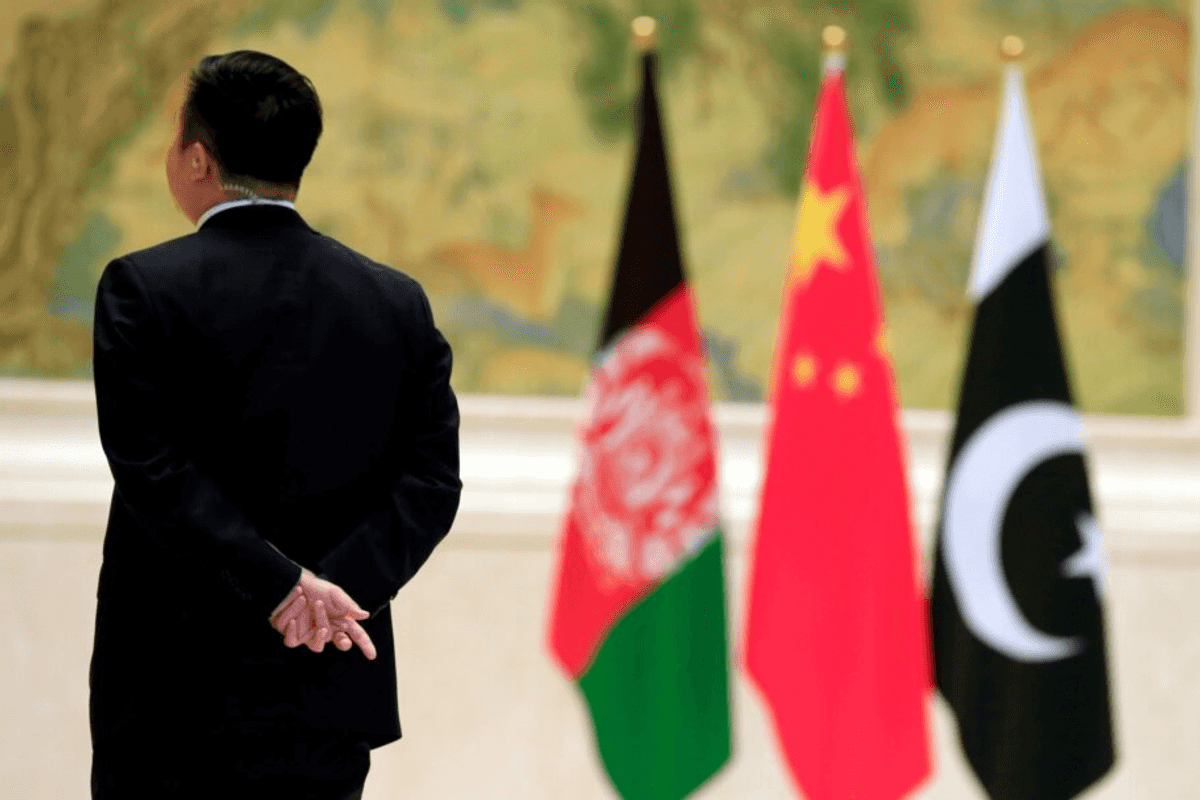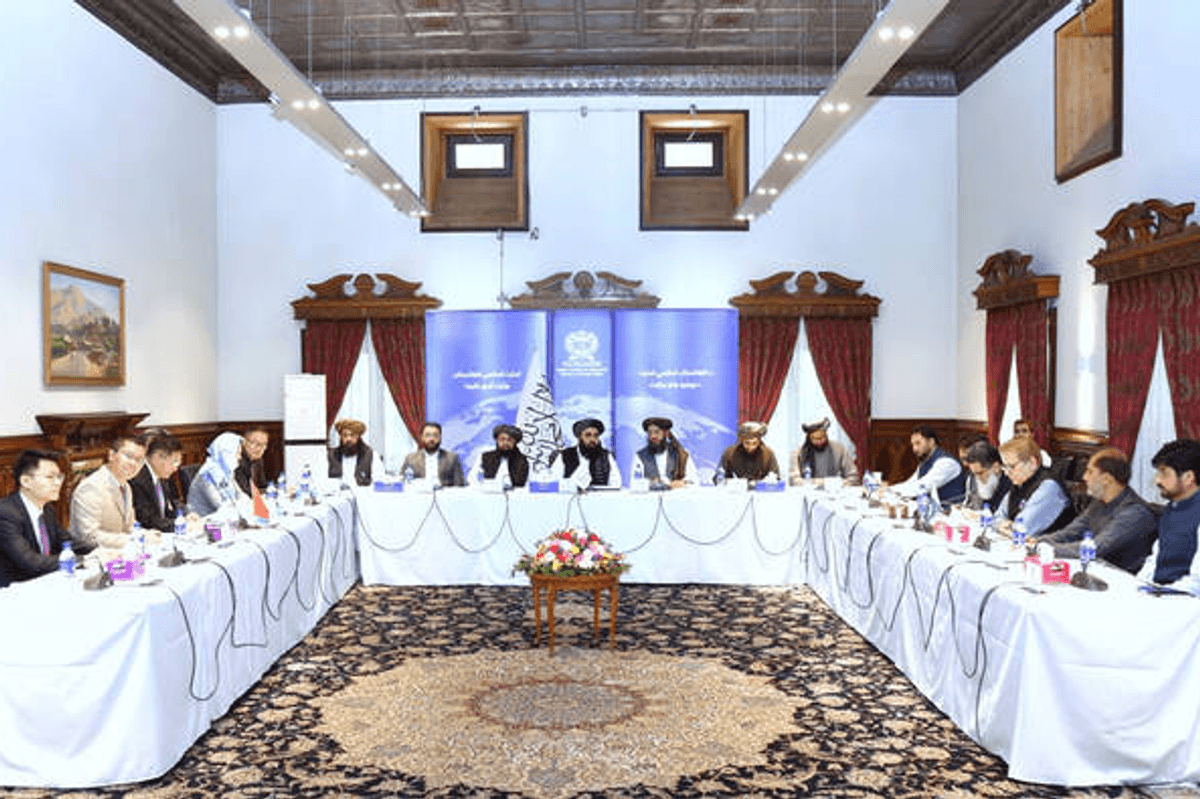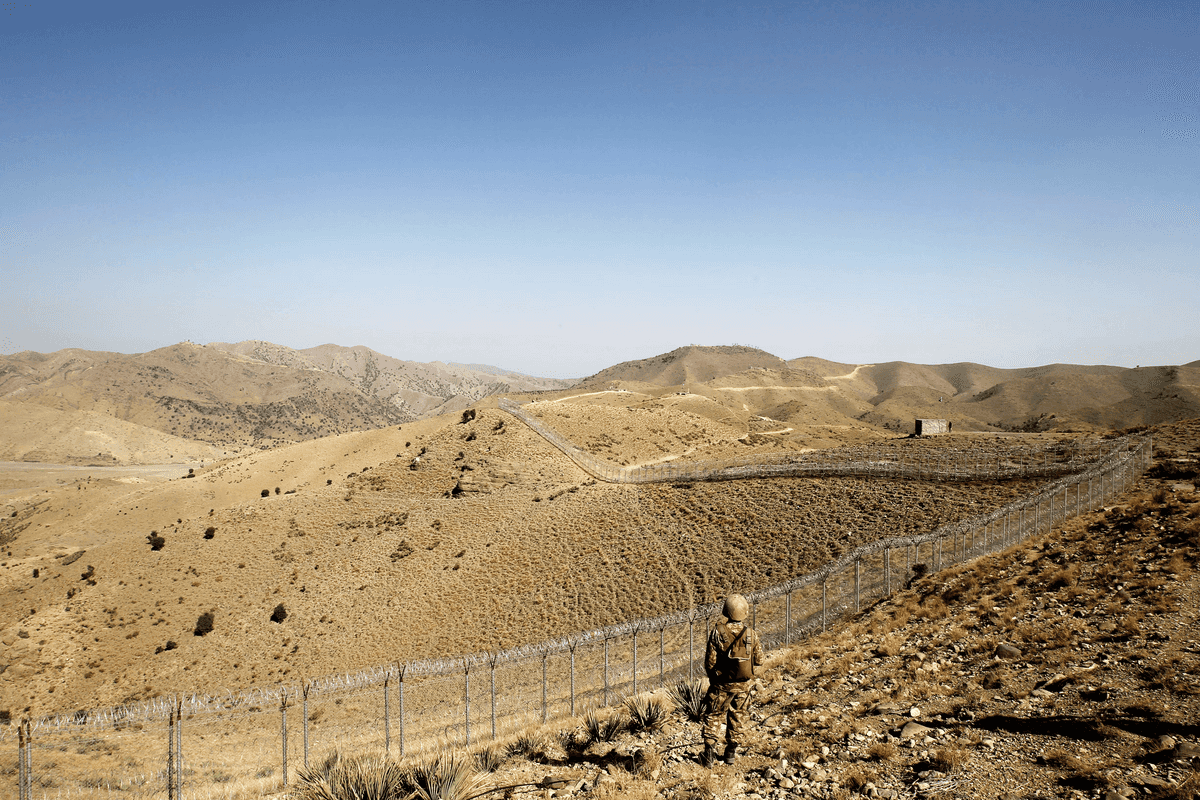How China is quietly trying to bridge Pakistan and Afghanistan
Experts see this as part of Pakistan’s long-term strategy to align with China-Afghanistan ties, noting success can only be judged over time

Asma Kundi
Producer, Islamabad
Asma Kundi is a multimedia broadcast journalist with an experience of almost 15 years. Served national and international media industry as reporter, producer and news editor.

China pledges sustained political and economic support to improve infrastructure and connect Afghanistan with regional markets
Reuters/File
With the eastern horizon clouded by military tension and diplomatic frost with India, Pakistan is quietly charting a new course -- one paved with trade convoys, reopened gates, and trilateral handshakes.
While the Line of Control remains volatile, a surprising calm is taking shape on the western frontier, where diplomacy with Afghanistan and deepening ties with China are redefining Pakistan’s regional strategy.
In recent weeks, the reopening of major border crossings -- including Kharlachi and Torkham -- has breathed new life into Pakistan-Afghanistan relations, marking a sharp contrast to the standoffs in the east. Backed by China’s growing investment and strategic mediation, Islamabad is embracing a pivot westward, turning border flashpoints into potential lifelines of economic revival and regional stability.
A key breakthrough came during a trilateral meeting in Kabul on May 10, 2025, hosted by Afghanistan’s acting Foreign Minister Amir Khan Muttaqi. The dialogue brought together Mohammad Sadiq and China’s Special Envoy Yue Xiaoyong as part of the ongoing China-Pakistan-Afghanistan initiative launched in 2017. The meeting yielded significant agreements, including the extension of the China-Pakistan Economic Corridor (CPEC) into Afghanistan and deeper integration with the Belt and Road Initiative (BRI).
China pledged sustained political and economic support to improve infrastructure and connect Afghanistan with regional markets -- a move seen as both a stabilizing force under Taliban rule and a counterweight to Western influence. By anchoring the trilateral dialogue and investing in connectivity, Beijing continues to expand its regional footprint while boosting Pakistan’s strategic options amid its eastern challenges.

Security remained central to the talks, especially concerns over militant safe havens in Afghanistan. Pakistan reiterated its demand for action against Tehreek-i-Taliban Pakistan (TTP) sanctuaries, while all three parties vowed to enhance coordination in counterterrorism efforts. The meeting concluded with plans for the sixth round of foreign ministers’ talks in Kabul, marking a historic high-level engagement with the Taliban government.
Mohammad Sadiq’s visit has been marked by relentless diplomacy. Following the trilateral meeting, he held discussions with Afghan Interior Minister Khalifa Sirajuddin Haqqani on May 11 and later inspected operations at the Torkham crossing on May 12, describing the environment as cordial.
The same day, he met British Special Representative Andrew McCoubrey in Islamabad. Talks held at Torkham on May 13 focused on boosting trade and curbing violence along the Durand Line. The reopening of the Kharlachi crossing is also expected to uplift the local economy in Pakistan’s Kurram district and enhance bilateral trade.
For Pakistan, the warming ties with Afghanistan are not just about economics—they signal a shift toward strategic recalibration. At a time when Islamabad faces mounting pressure from the east, renewed cooperation with Kabul and stronger alignment with China offer much-needed balance.
China’s role and strategic gains
Speaking to Nukta, defense and international affairs analyst Hasan Askari said that Pakistan and Afghanistan appear to be moving toward a phase of improved relations, with China playing a pivotal role in facilitating this progress.
“China is deeply interested in the region’s mineral resources and is expanding its influence in Afghanistan through economic cooperation,” he explained. “Currently, China is acting as a moderator between Pakistan and Afghanistan because it has a vested interest in fostering good relations between the two countries.”
Askari stressed that better relations with Afghanistan serve Pakistan’s own interests, particularly in curbing terrorism. “Recent bilateral engagements and trilateral meetings suggest that Pakistan has realized it cannot afford to remain in constant conflict on every border. These talks had actually begun before the recent rise in tensions between Pakistan and India.”
He added that this appears to be part of Pakistan’s long-term strategy—to align itself with the deepening China-Afghanistan relationship. “China, in turn, is actively working to reduce points of tension between Pakistan and Afghanistan, and its efforts are already bearing fruit. For instance, a noticeable decrease in terrorist incidents along the Pakistan-Afghanistan border has been observed.”
Asked whether the evolving policy would deliver long-term benefits, Askari noted: “Only time will reveal how successful Pakistan’s new policy is. Policies like these can only be truly evaluated in the long run.”

Talking to Nukta, former diplomat Ayaz Wazir emphasized that Pakistan has long sought friendly ties with Afghanistan. He pointed to recent high-level engagements -- including the foreign minister’s visit to Kabul and Special Representative Mohammad Sadiq’s meetings with Afghan officials -- as positive moves aimed at reducing bilateral tensions.
Wazir also highlighted China’s emerging role in facilitating this thaw. “Afghanistan has shown a positive response to Pakistan’s peace initiative,” he said, adding that improved ties are crucial for ensuring lasting peace and regional stability.
Commenting on the trilateral meeting, Wazir called it a “significant development”. He noted that China’s involvement is driven by economic interests, particularly Afghanistan’s rich mineral reserves. “China has a strategic interest in maintaining regional stability, especially due to its investments in CPEC,” he said.
He added that the TTP’s presence not only threatens Pakistan’s internal security but also puts Chinese infrastructure projects at risk. “Strong and stable Pakistan-Afghanistan relations are in Pakistan’s interest, especially at a time when tensions with India are running high.”







Comments
See what people are discussing